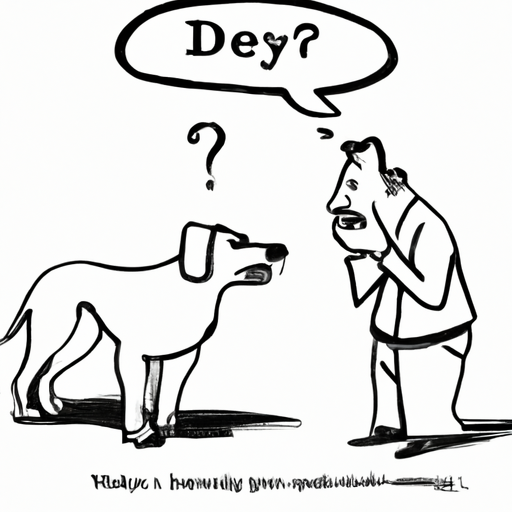Watching our canine companions display unusual behaviors can be both concerning and confusing. One such behavior is a dog’s jaw quivering. This article will help you understand why this might happen, what it could mean and what to do about it.
1. Understanding a Dog’s Jaw Quiver
A dog’s jaw quiver can be a complex and multifaceted issue. It’s not always a cause for concern, but it can sometimes be a sign of a more serious problem.
What Does it Look Like?
A dog’s jaw quiver is exactly what it sounds like. The lower jaw may shake or quiver. This can happen for a few seconds or it could last for a few minutes.
Common Reasons
Here are some common reasons why your dog’s jaw might quiver:
- Excitement or Anticipation: Dogs can sometimes quiver out of sheer excitement or anticipation of something they enjoy, like a treat or a walk.
- Cold: Just like humans, dogs can shiver when they’re cold. This can sometimes include their jaw.
- Stress or Fear: If your dog is stressed or scared, their jaw might quiver.
- Old Age: In older dogs, a quivering jaw can be a sign of aging and loss of muscle control.
2. When to be Concerned
While a quivering jaw can be completely normal, there are times when it may indicate a more serious issue.
- Extended Quivering: If your dog’s jaw is quivering for extended periods of time, it might be a sign of a neurological issue.
- Other Symptoms: If your dog’s jaw quivering is accompanied by other symptoms such as loss of balance, seizures, or difficulty eating, it’s time to consult a vet.
3. Possible Medical Conditions
Several medical conditions can cause a dog’s jaw to quiver. It’s always recommended to consult with a veterinarian if you’re concerned.
| Conditions | Symptoms |
|---|---|
| Distemper | Fever, coughing, nasal discharge |
| Seizures | Loss of consciousness, shaking, loss of bowel control |
| Oral Pain | Difficulty eating, pawing at the mouth |
| Canine Parkinson’s Disease | Tremors, slow movements, stiffness |
4. What to Do if Your Dog’s Jaw is Quivering
If you’ve noticed your dog’s jaw quivering, here are some steps you can take:
- Monitor: Keep an eye on your dog and take note of how often the quivering happens and any other accompanying symptoms.
- Consult a Vet: If the quivering persists or if it’s accompanied by other worrying symptoms, consult a vet. They might want to run some tests or do a physical examination.
- Follow Vet’s Instructions: If your vet finds an underlying condition, make sure to follow their treatment plan.
5. Prevention and Management
While not all causes of a dog’s jaw quivering can be prevented, some can be managed.
- Warmth: If your dog is cold, provide them with a warm blanket or move them to a warmer area.
- Comfort: If your dog is anxious or scared, comforting them can help stop the quivering.
- Regular Vet Checkups: Regular vet checkups can help catch any potential issues early.
FAQ
Q1: Is a dog’s jaw quivering a sign of a seizure?
- It can be, particularly if it’s accompanied by other symptoms such as loss of consciousness or uncontrollable shaking.
Q2: Can a quivering jaw be caused by stress?
- Yes, stress can sometimes cause a dog’s jaw to quiver.
Q3: What should I do if my dog’s jaw is quivering?
- Monitor your dog, note any other symptoms, and consult a vet if the quivering continues or if other symptoms appear.
Q4: Can I prevent my dog’s jaw from quivering?
- It depends on the underlying cause. Some causes, like cold or stress, can be managed. Others, like medical conditions, may require treatment.
Q5: Should I be worried if my dog’s jaw quivers when they’re excited?
- Not necessarily. Some dogs quiver out of excitement. However, if you’re concerned, it’s always best to consult a vet.



